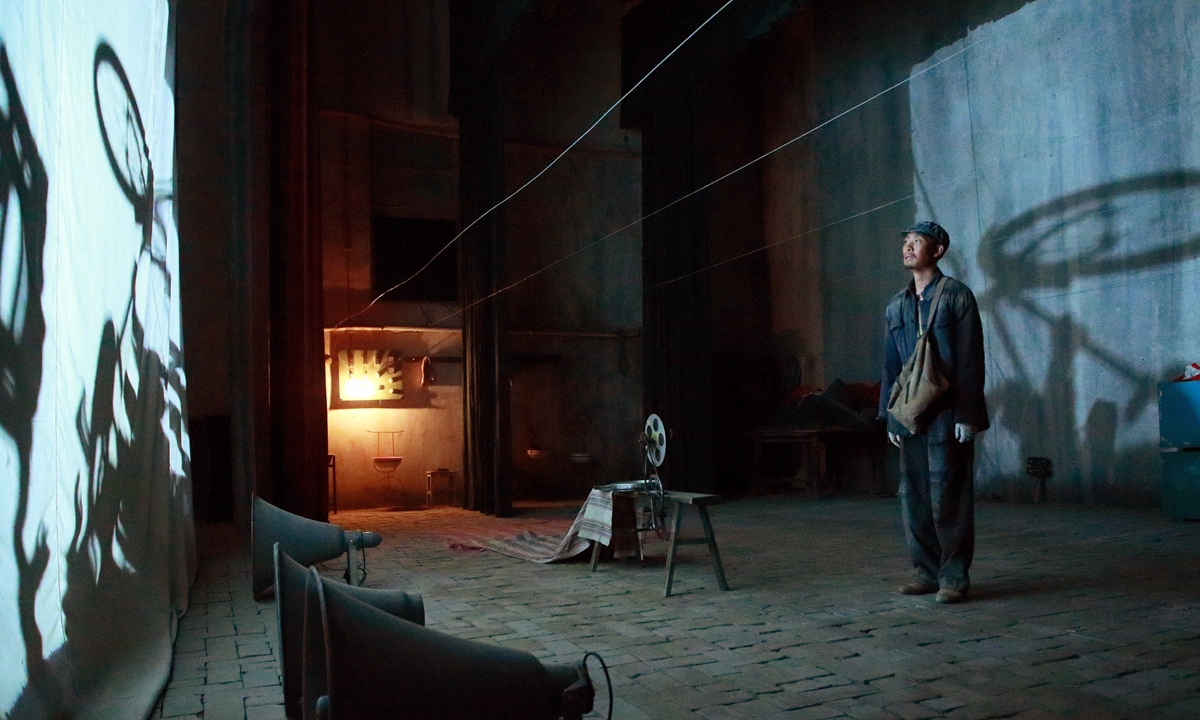Chinese audiences show great tolerance for released version of Zhang Yimou's 'One Second'
By Gong Qian Source: Global Times Published: 2020/11/29 22:26:27

A promotional photo of the film One Second. Photo: IC
For some people like Zhang Jiusheng, "one second" is like a lifetime, while for some people like Zhang's daughter, life was stopped in "one second."
That's the feeling some audiences may have after watching Chinese director Zhang Yimou's film One Second.
Removed from the Berlin Film Festival and China's Golden Rooster and Hundred Flowers Film Festival line ups due to "technical issues", film One Second was finally released in Chinese mainland theaters on Friday.
Set in Northwest China's Gansu Province during the Cultural Revolution (1966-76), the film tells the story of an escaped prisoner named Zhang Jiusheng who desperately wants to find a newsreel that contains just one second of footage of his daughter and a homeless vagabond girl named Liu Guinü who wants to steal the same film to make a lampshade (a very popular decoration in the mid-1970s) for her younger brother.
The film currently has a high score of 7.9/10 on Chinese major media review platform Douban. However, this high score has not been reflected in its box office, which reached 61.22 million yuan ($9.3 million) as of Sunday afternoon, according to Chinese ticketing platform Maoyan. This could very well be because the film cannot escape its nature of being an art film.
At a press conference in Beijing, the 70-year-old director said that he wanted to shoot the film to pay tribute to the age of physical film while he still had the physical strength to shoot in the desert and have the funding to shoot an art film.
Watching a movie in the Chinese mainland during the 1970s was an event akin to celebrating Chinese New Year for many. In remote desert areas, people had a strong desire to watch films. They also had a great deal of respect for film projectionists, which can be reflected in a scene from the film in which film projectionist Fan Dianying instructs residents on how to clean a film strip after it was dropped and dragged a few miles through the dirt.
When Fan announces that the film strip has been fixed and the film can be watched, the people in the auditorium cheer and applaud, which demonstrates people's passion for film in that era.
These people's mood was similar to the excitement Chinese movie lovers felt after they learned that cinemas in the mainland were going to reopen in July after a nearly six-month shutdown due to the COVID-19 pandemic. It seems that watching movies in cinemas has been a ritual in China for a long time. Many netizens took notice of this, saying in reviews for the film that it has reminded them of the importance of watching movies in cinemas rather than through streaming platforms.
"A good film should be watched in theaters, that's the tradition from the older generations and cannot be changed," one Chinese netizen wrote on Zhihu, China's Quora-like Q&A platform.
Compared with the discussion of the film in China, many foreign media outlets have only maliciously focused on conjecture concerning how the current version, which is one minute shorter than the run time listed for its Berlin debut, has been changed.
However, Chinese audiences have already shown great tolerance for any revisions, saying that the new version is a complete version that can be discussed on its own merit.
Some film insiders told the Global Times that they really appreciate the director's excellent skill in dealing with the background of the Cultural Revolution and how it was melded into the story and the characters.
As any filmmaker knows, editing a film - be it for commercial or other reasons - to fit the market is just part of the job.
Posted in: FILM,MISCELLANY,ARTS FOCUS